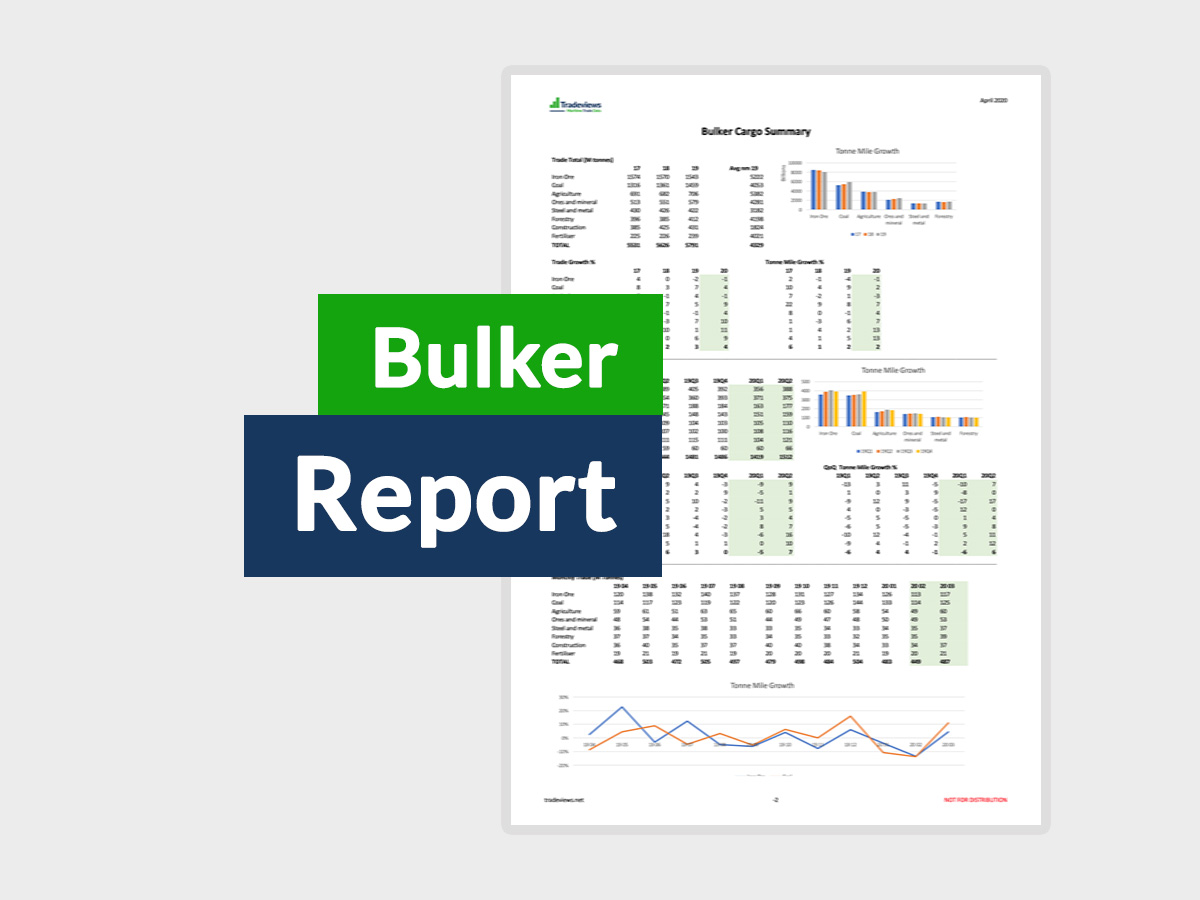Project Description
Summary:
The Baltic Dry Index fell 40% in three weeks in October, heading down to August’s level. However, when we look at the dry cargo decline, it’s only down 2%. We therefore conclude that the reason is to do with fleet inefficiencies and vessels operations, possibly port congestion easing and other factors like COVID 19 restrictions at ports.
Iron ore was the biggest faller in October down 8%. This is likely due to Chinese real estate concerns and the knock on effects from Evergrande’s troubles. Chinese Iron ore demand fell from 107 million tonnes to 101 million tonnes in October. This is historically not a great fall. Earlier in the year, China was importing 90 million tonnes in April, so a relatively small jump back.
Overall coal volumes on a Tonne mile basis rose 2% in October, however, the volumes of steam coal dropped back a little bit. China was the big gainer. They imported 17 million tonnes compared to 14 million tonnes a month before. Japan and South Korea imported less than they had in the previous months.
In the grains group we see in a shift in October. Brazil’s Soya bean season has come to an end with 3.3 million tonnes exported. While USA volumes gain momentum, moving from 2 million tonnes to 6 million tonnes between September and October.

